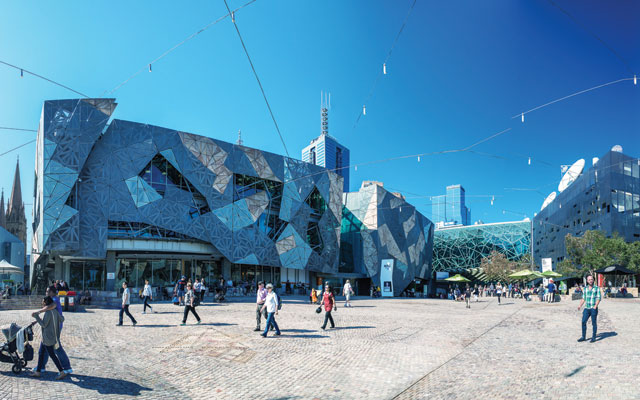Melbourne Convention Bureau has a rosy forecast but association meeting specialists in the city are more cautious about their future
The health of the associations industry in Melbourne these days may well depend on who you ask. The sector is facing challenges including those that echo global trends but not everything points towards decline, painting a picture of an industry that is changing shape as we speak.

“I’d say we’re in a very healthy place,” offered Karen Bollinger, CEO of the Melbourne Convention Bureau (MCB). “For us, we’re always about looking forward and the international associations sector is really a core part of our business. That’s where the highest yields, longest staying delegates are,” she said.
Bollinger noted the MCB secured 26 international association bids last year, which is its average, but more significantly, the bureau secured sizeable bookings like the five-day Lions Clubs International Convention 2024 with 13,000 attendees and the 2022 World Ophthalmology Congress which could see up to 20,000 delegates descend on the city. The two events will be the largest conferences ever held in Victoria.
MCB calls the international association sector the jewel in Melbourne’s business events crown, contributing 70 per cent of economic impact for 2016/17 FY, or A$226 million (US$172 million) in economic contribution, and is expected to attract over 38,900 delegates between 2017 and 2025.
The numbers prompted Bollinger to shy away from projecting any other figures for future performance. She said: “I’m a little nervous because we’re actually well ahead so I’m wondering if we did a good job forecasting, or did we just do a really good job of converting.”
But just across the river from the MCB office, the Melbourne Convention and Exhibition Centre (MCEC) tells a less optimistic story. “I think generally budgets seem to be flat for associations,” said its CEO Peter King, referring to both international and national sectors. “It’s tougher, it’s very competitive and (attendee) numbers are declining.”
King clarify that at the MCEC, the actual number of meetings rose by about 20 per cent while attendees declined by up to 20 per cent, which was “certainly impacting the bottomline”, he said.
King cited association mergers, their need to generate more revenue, tougher standards for business operations and the ongoing relevance of some associations that are putting pressure on the sector.
Also compounding the problem, opined Associations Forum manager of client services Denys Correll, were questionable practices by some major associations which were prominently highlighted in the mainstream media last year.
Over at Pullman Albert Park, a popular venue for association meetings, director of sales for conference & events, Emma Parker, has also seen weaker bookings.
She puts it down to Melbourne losing bids to competing cities, notably Sydney where the International Convention Centre opened its shiny doors in December 2016 and the Gold Coast. Her observations are supported by findings from the Conference Monitor which showed association bookings in NSW were up 38 per cent last year over the previous year.
Parker isn’t optimistic about the immediate future.
She said: “In the last 12 months, national associations have said to us that they’re struggling to get the numbers. Some said there’s been a lot of conference fatigue. From what I’m seeing on the books, we don’t have a lot of association business for the next financial year. It’s definitely a softer market particularly for Melbourne. In my opinion, 2018 and 2019 are going to be tough on Melbourne.”
Parker and King are however optimistic that bookings for Melbourne will improve once the MCEC’s newly expanded facilities open in July 2018.
“The associations sector is still going to be incredibly important,” said King. “It’s just that the way those events are conducted and the way we drive revenue and manage those events is changing.”
That makes this a space to watch.











